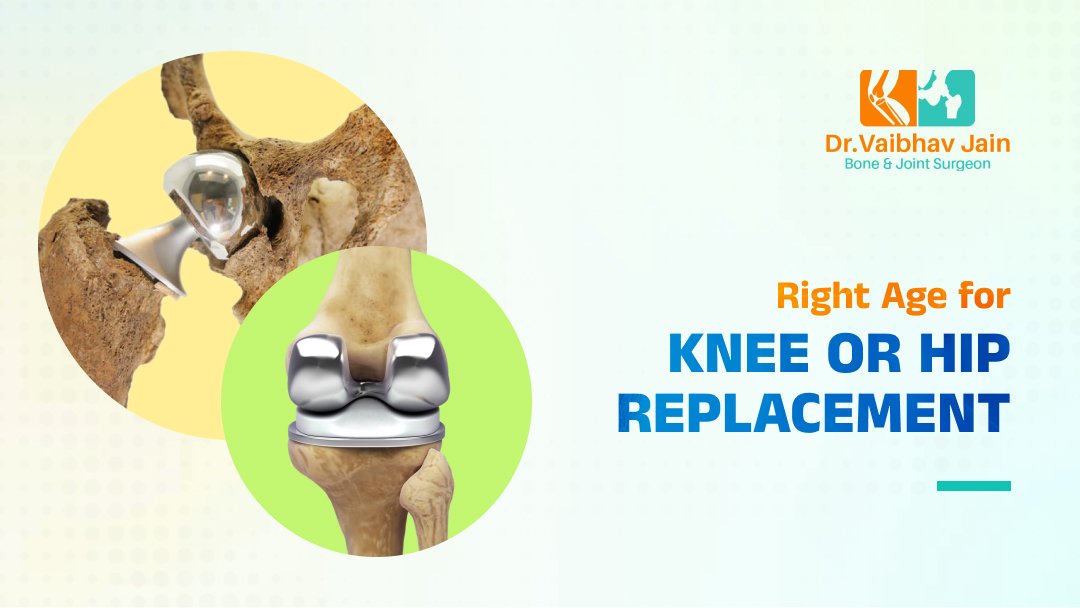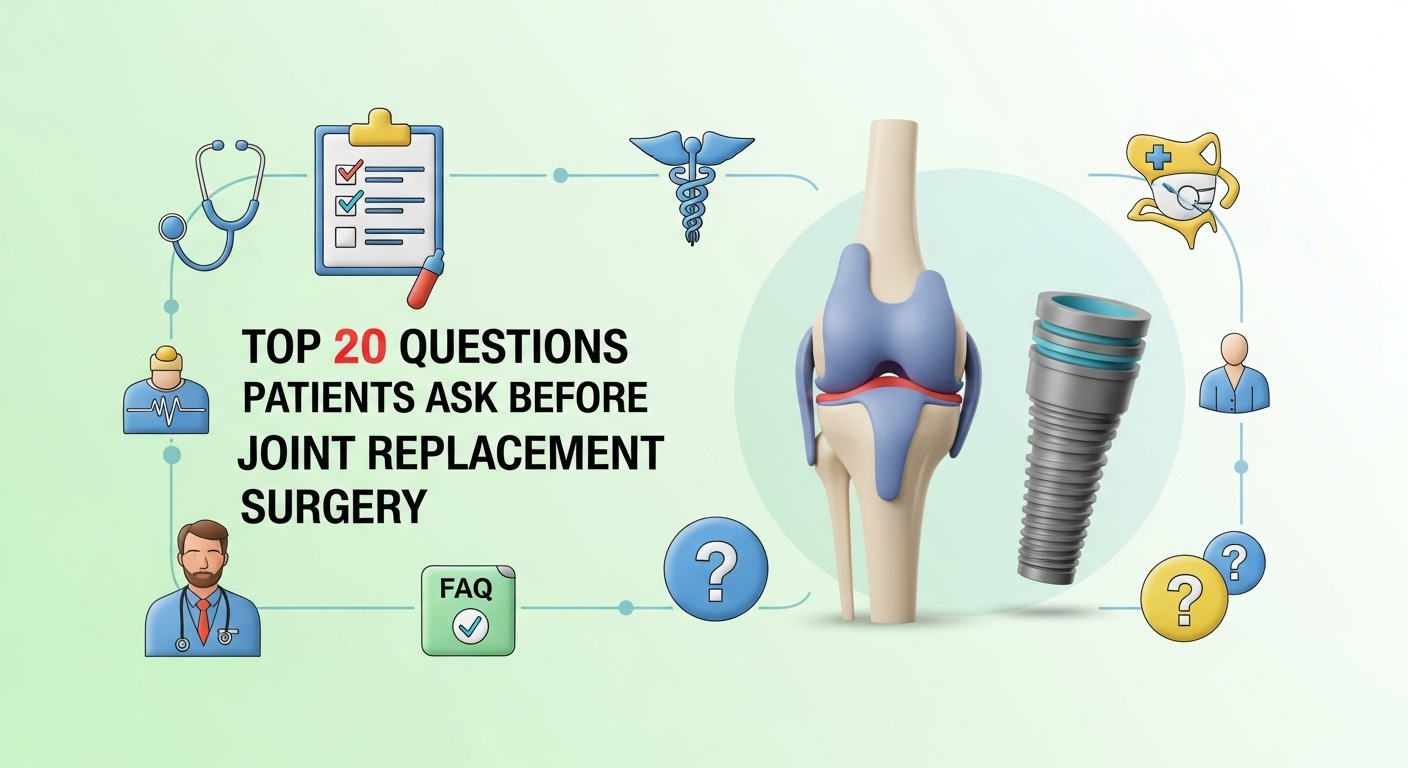In joint disorders, the temporal aspect is of paramount importance. Whether you are suffering from a stiff knee or a restless hip, surgery is all that matters. But when exactly is the right time? Does it help to know what is the most appropriate age for knee or hip replacement surgery? So let’s get into it! Understand the major aspects that influence one’s decision to undergo surgery.
What Is the Best Age for a Replacement of the Knee or the Hip?
Here, there is no universally acceptable solution. Age for Knee or Hip Replacement has a wide range. Most patients, however, undergo this procedure between the ages of 50 and 80. However, that’s simply a rough swath. The choice is subjective and depends on health factors, activity, and pain levels.
The Role of Age in the Success of a Knee or Hip Replacement
Age is a significant factor when it comes to the outcome of surgeries. Young patients heal quicker and adjust well to joint replacement. Older patients heal slower but can still manage to derive sustained relief. This is exactly why it is important to know the best age for hip replacement or knee surgery.
Is There a Recommended Age for a Hip Replacement?
The question of Age for Knee or Hip Replacement often divides opinion. Some physicians suggest that the best age to have one is the sixties. This is because most hip implants last for approximately 15-20 years. If you are younger and active, chances are you will require a second operation much later in the years.
Patients as young as of thirties or forties undergo knee surgery or hip replacement. This is especially true for those with severe degenerative joints. Which are a result of trauma or arthritic conditions.

Hip Replacement for Elderly: Is It Safe?
Definitely yes! Hip replacement surgeries for geriatric patients are done without much risk. A lot of people above 70 years old, and even above 80 years old, also undergo hip replacement surgeries. It’s only a number as long as your health is reasonably good. So it’s understandable why people will opt for this operation. This procedure can enhance your lifestyle.
When Should Young Patients Consider Knee or Hip Surgery?
For younger patients, it is all about timing. Young patients knee surgery should be the last resort. If pain is unbearable in everyday activities, participate in an active lifestyle.
However, younger patients have a different issue altogether. The more active you are, the less time it will take before your implant begins to wear out. This may require another surgical procedure to be done later on.
How Long Do Joint Implants Last?
The latest generation of implants can last from fifteen to twenty years and even more. However, the length of time for which they can serve the patient depends on his or her level of activity. Younger patients, who tend to be more active, are likely to wear out their implants quicker.
What Are the Signs It’s Time for Surgery?
What are some signs that tell you it is time for a joint operative replacement? Here are a few signs that indicate surgery may be inevitable:
- Pain which interferes with routine activities
- Joint pain and stiffness along with decreased range of motion
- Problems with walking and/or going up or down stairs
- No effect from medication or physiotherapy
These signs indicate the right Joint replacement surgery timing.
How Can I Delay Surgery?
Before going the surgical route, consider medical alternatives:
- Braces, massage, and other physical methods build up muscles rather than undergo surgery.
- Narcotics or nerve block agents to relieve discomfort and pain.
- Weight control to lessen the pressure on the joints.
These can help postpone the surgery and alleviate discomfort. They may not be effective in dealing with chronic injuries sustained to the joints.
What Risks Do Young Patients Face?
Knee or hip surgeries performed on young patients may yield positive results. Still, they may carry certain risks. Younger patients are more likely to have a revision. Due to greater activity levels, the wear of the implants comes sooner than expected. Such revision surgeries tend to be more challenging than that of the first one.
Can You Be Too Young or Too Old?
Surgery age limits are not defined. It is determined by factors such as pain, damage to the joints, and general health. The appropriate time to carry out the procedure is when the pain becomes intolerable.
Will There Be An Age Where Surgery Is Most Appropriate?
The “safe age’ for operations’ is not universal as it varies with individuals. The recommended age for a hip arthroplasty intervention is mostly 60 to 70. Still, patients who are either younger or older can reap the advantages as well. However, it is the drawback of life that is important.
Things to Think About:
- General health and fitness of an individual
- The level of pain and joint destruction
- How engaging your current condition is to your daily life
Timing Is Everything
Giving out the appropriate age for knee or hip replacement surgery is open to personal views. It concerns how much pain in the joints is disruptive in your daily life. There is no specific ‘ideal’ or ‘perfect’ age to replace joints. Although most patients will do better within the age brackets of fifty to eighty. Younger patient populations must consider the implant wearout risks. The elderly patients are still able to reap the advantages of the surgery as long as they are fit enough.
Take for example, in such instances, one’s age should not matter when the option of surgery is available. Try and avoid applying for any surgical procedures. Yet if aching becomes unbearable and limits the movements, it may be time. Therefore, seek clinical attention soon.
Are you looking for advice concerning your age? Getting the help of our professional Dr. Vaibhav Jain might help!





